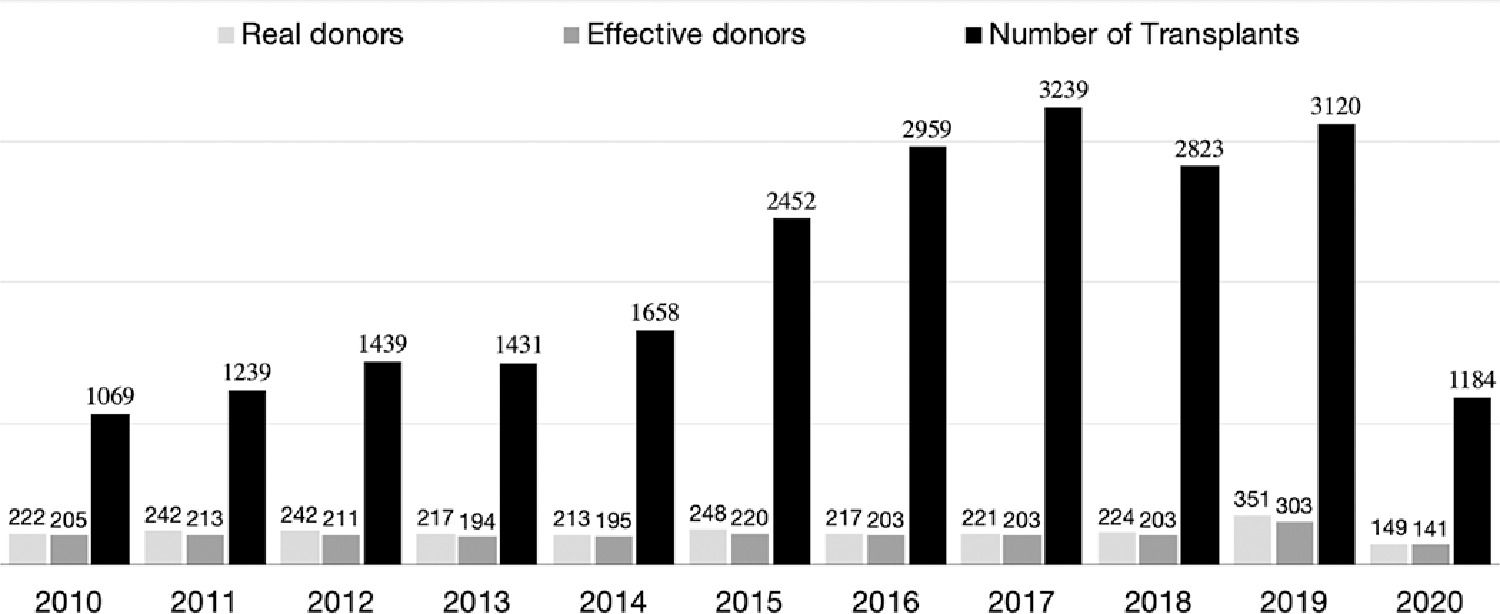
Abstracts of the 2021 Annual meeting of the ALEH (Asociación Latinoamericana para el Estudio del Hígado)
More infoEarly preventive strict quarantine due to COVID-19 pandemic was implemented in Argentina since March 20th, 2020. Transplant societies and organ procurement organizations were challenged to face this complex scenario and sustain organ donation and transplantation activity.
ObjectivesWe evaluated the impact of complete and preventive lockdown in organ procurement and transplantation before the COVID-19 peak onset.
Materials and MethodsWe analyzed prospectively collected data from the National Report Agency (INCUCAI). By constructing time series, we compared donation and transplant rates from the years 2010 to 2020, during a same monthly-period between March 3rd and July 20th. We evaluated the effect of preventive lockdown before the peak of COVID-19 curve. Donation rates per million population in these months were also registered for each year. Transplant accessibility was calculated, dividing the total number of transplants and the total number of listed patients.
ResultsThe preventive lockdown was associated with a 34.5% relative reduction (95% CI 26.9-43.2) in organ procurement when compared to 2010-2019 and significantly reduced comparing 2019 [53.3% (CI 44.6-61.6)]. This scenario was even worse in Buenos Aires city and its surroundings, the region most affected by COVID-19. During this period, donation per million population rates decreased from 7.8 in 2019 to 3.3 in 2020. This reduction was even higher in the number of deceased and living donor transplants performed comparing 2019 vs. 2020, with a relative reduction of 62.0% (CI 30.8-89.1) and 68.8% (CI 65.7-71.7), respectively.
ConclusionsDuring this short observation period of 120 days of preventive quarantine, not yet having reached the "peak" incidence of COVID-19, a marked reduction in procurement and transplantation rates were observed. Although waiting list mortality was not significantly modified, transplant access has been significantly reduced, showing a future negative trend on waitlist mortality.









